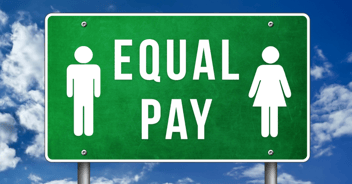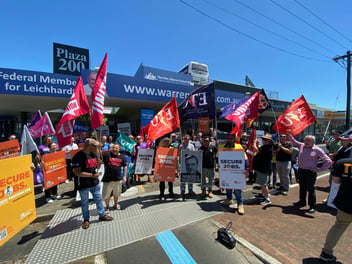Mental health Code of Practice required in all workplaces
Queensland Unions are calling for a compulsory mental health code of practice for all Queensland workplaces as communities confront challenges from the psychosocial hazards at work compounded by the psychological impact of coronavirus and bushfires.
This year’s Workers’ Memorial Day on 28 April will focus on ensuring private and public sector workplaces acknowledge that they play a crucial role in the mental health of workers and their communities.
Workers Memorial Day in 2020 will be held online, with a Facebook service with prayers and messages of remembrance.
Queensland Council of Unions General Secretary Michael Clifford said the mental health impacts of coronavirus and associated work pressures, as well as the bushfire season, will lead to heightened anxiety and concern among workers.
“A mental health code of practice is just as important as any specific industry code, like managing risks of falls from heights, working in confined spaces, noise, or manual handling tasks.
“A code of practice will reinforce to employers their current duty of care to ensure psychological health under the Work Health and Safety Act in Queensland and provide important guidance on how to eliminate or minimise the risk of psychosocial hazards.
“Managing psychosocial hazards like client abuse or workload anxiety is just as important as managing physical hazards like falls from heights,” he said.
Research by mental health support service Beyond Blue says one in five Australians (21%) have taken time off work in the past 12 months because they felt stressed, anxious, depressed or mentally unhealthy, with the most common mental health illnesses are anxiety and depression.
Mr Clifford said mental ill-health also hurt employers, with a KPMG report in 2018 finding mental ill-health in the workplace costs an average of $3,200 per employee with mental illness, and up to $5,600 for employees with severe mental illness.
Overall, it was estimated that the cost of workplace mental ill-health in Australia was $12.8 billion in 2015–16.
Suicide is also the leading cause of death for Australians between 15 and 44 years of age.
Mr Clifford said the community response to the coronavirus pandemic would also lead to an increase in psychosocial issues across many workplaces.
This is especially prevalent in FIFO workplaces where extended shifts are generating added stresses to workers and their families.
“Already we are seeing employers trying to make changes to rosters and work practices that will needlessly elevate stress and anxiety among workers, and also increase the risk of physical injury.”
“It’s been a difficult year already in Queensland and Australia,” he said, “with loss of life in the dreadful bushfires and now workers across many industries risking their health and safety to keep their communities safe and supplied.”
“Unions have always fought for stronger health and safety laws to make workplaces safer for workers and the public,” he said.
“Unions successfully called for industrial manslaughter laws in Queensland so that dodgy bosses go to jail if a worker dies in an unsafe workplace.
“There was a successful prosecution this year after a worker died in a forklift accident in Brisbane.
“A mental health code of practice is just as important in stronger workplace safety laws,” he said.



